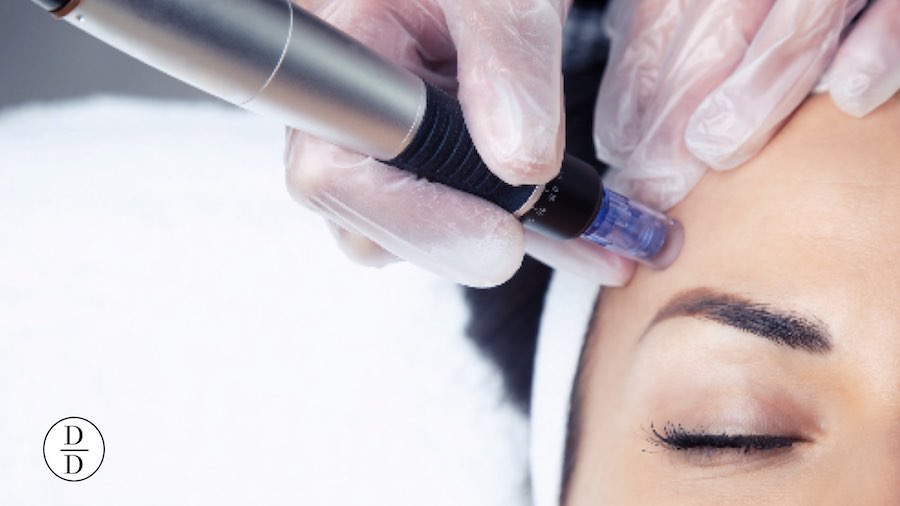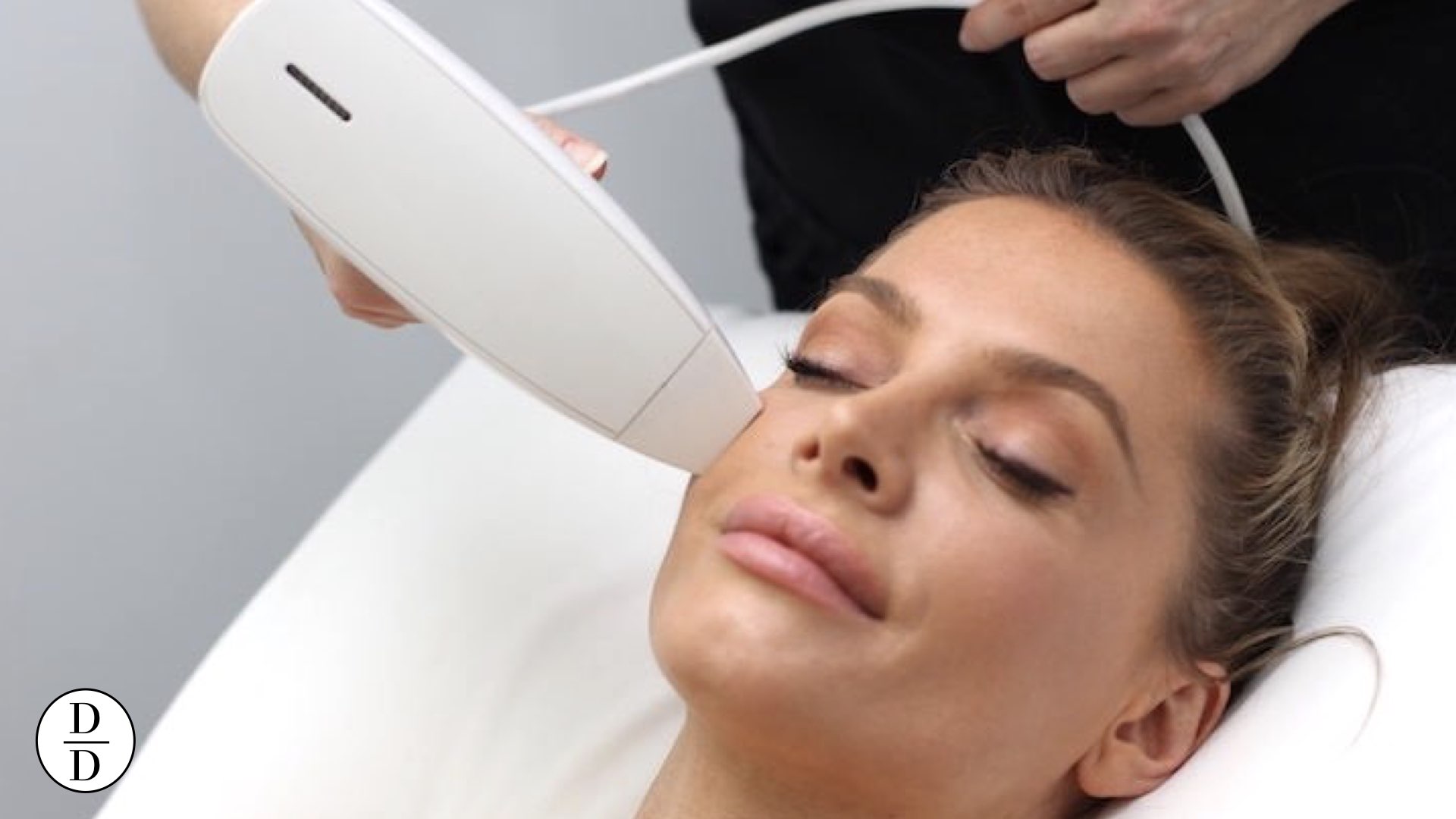
Scar Treatment
DERMAL DISTINCTION
Cosmetic Anti-Ageing & Skin | Balwyn North

Scar Treatment
Dermal Distinction
ANTI-AGEING & SKIN
Treatment for scars
Reducing Scars
When treating scars, we are focussing on re-organising the deeper layers of the skin so that damaged collagen is rebuilt. Reducing scars is aimed at re-organising the structure of the dermis to more closely resemble the organised mesh that is in normal uninjured skin. We will devise a plan to treat your scars in the most appropriate way.
Scars can be treated whether they are the result of an accident, or whether they are acne scars. It is possible to reduce the appearance of the scar with treatment.
We have a number of treatment options including scar subcision, radio frequency, micro needling and laser treatment.
Scars | Essentials
What is a scar?
A scar is the body's natural way of healing and replacing lost or damaged skin. A scar is usually composed of fibrous tissue. Scars may be formed for many different reasons, including as a result of infections, surgery, injuries, or inflammation of tissue.
Scars may appear anywhere on the body, and the composition of a scar may vary. A scar may appear flat, lumpy, sunken, or colored. It may be painful or itchy. The final look of a scar depends on many factors, including the skin type and location on the body, the direction of the wound, the type of injury, age of the person with the scar, and his or her nutritional status.
There are a few different classifications of scars. These include:
1. Keloid Scars
2. Hypertrophic Scars
3. Box Car Scars (acne scars)
4. Ice pick scars (also common after acne)
5. Stretch marks
What are the signs of a scar?
When a scar first develops on lighter skin, it’s usually pink or red. Over time, the pinkish color fades, and the scar becomes slightly darker or lighter than the color of the skin. In people with dark skin, scars often appear as dark spots. Sometimes scars itch, and they may be painful or tender.
A scar’s appearance depends on several factors, including:
+ Injury or event that caused the scar, such as surgery, a burn or severe acne.
+ Size, severity and location of the wound.
+ Treatment you received for the wound, such as stitches or bandages.
+ Your age, genes, ethnicity and overall health.
We are able to treat and minimise scars, so that they are almost imperceptible.
What are treatments for scars?
Treating a scar will be different for each scar type, so the best place to start is a consultation. We have a number of treatment options, all of which are aimed at disrupting the scar so that smoother, flatter skin forms.
Treatment options include:
1. Venus Viva Treatment
2. Skin Needling
3. Dermafrac treatment
4. Subcision and dermal filler placement. This is done by Dr Giulia D'Anna.
Assessment will be required before we will treat you to ensure that we can match the correct treatment with your scar and treatment requirements. In most cases, several treatments will be required to minimise the scar, as scars form deep in the skin layers. So we need to treat the skin carefully to slowly encourage more organised collagen formation in the skin.
Can I prevent a scar?
Aside from general skin health, sometimes we have a skin condition that worries us. If you have a scar, acne, broken Although you can’t always prevent injuries that cause scars, you can reduce the risk of a scar forming after an injury. If a scar does develop, careful care can make the scar less noticeable.
To reduce the risk of scarring, you should:
1. If you have a wound that may leave a scar, visit your provider for an examination. Be sure to follow your provider’s instructions when caring for stitches. Depending on the type and location of the wound you may need oral or topical antibiotics to prevent infection.
2. Clean the wound: Wash the area with soap and water. Clean out any dirt or dried blood, and apply a bandage over the wound to keep germs out. Be sure to change the bandage often as the wound heals.
3. Keep the wound moist: Applying petroleum jelly or moist burn pads will keep the wound from becoming too dry and developing a scab. Scabs can make scarring worse.
4. Protect it from the sun: Cover the scar or use sunscreen to protect it. Sun exposure can make a scar darker.
Treatment options for scars
Skinpen
Skinpen micro needling treatment is TGA listed to treat Melasma in Melbourne, as well as acne scars. DermaPen is a well known treatment for most skin conditions, including scars
Skinpen pigmentation Treatment
Step 1: Pharmaceutical numbing cream is applied.
Step 2: SkinPen is undertaken with essential growth factor and peptide ampoule infusion.
Step 3: LED Light therapy
Treatment Plan: 6 sessions, spaced 14 days to 28 days apart


Venus Viva
Venus Viva radiofrequency (RF) heats the collagen fibres in the skin, causing tightening and also stimulation of new collagen. Scars are visibly reduced after just one session, but usually need somewhere between 3-6 treatments for more complete resolution. We will apply numbing cream to your skin for 30 mins before treatment, and finalise your treatment with an LED facial. Six treatments are recommended. Full face and Neck (including LED facial) 90 mins
Venus Viva Results
Designed to resurface the skin, which helps reduce the appearance of acne scars and other scars, striae, rosacea, pigmentation, deep wrinkles, enlarged pores, and uneven skin texture and pigmentation for all skin types
Am I a good candidate for Venus Viva?
The ideal candidate is anyone who shows signs of skin damage, including deep wrinkles, scars, visible pores, stretch marks, and/or anything else that affects the skin’s texture.
Smart Scan technology
Venus Viva uses a unique pattern selection technology that enables a customized pattern for maximum flexibility and control during treatment
Enables fractionated (fraxel-like) treatment, resulting in more effective skin resurfacing for mild to severe skin conditions
How will I feel after treatment?
Your skin will be red and feel warm afterward, like a sunburn. You can ease this by fanning or exposing the area to cool air. Don’t put anything on your skin, not even tap water, for 24 hours. The warm feeling should go away within 24 hours.
It is important that you wear SPF to prevent further deterioration of your skin.
Book a consult
Let's get you started on your treatment. We will start with a thorough consultation to see what type of skin treatments are right for you.
